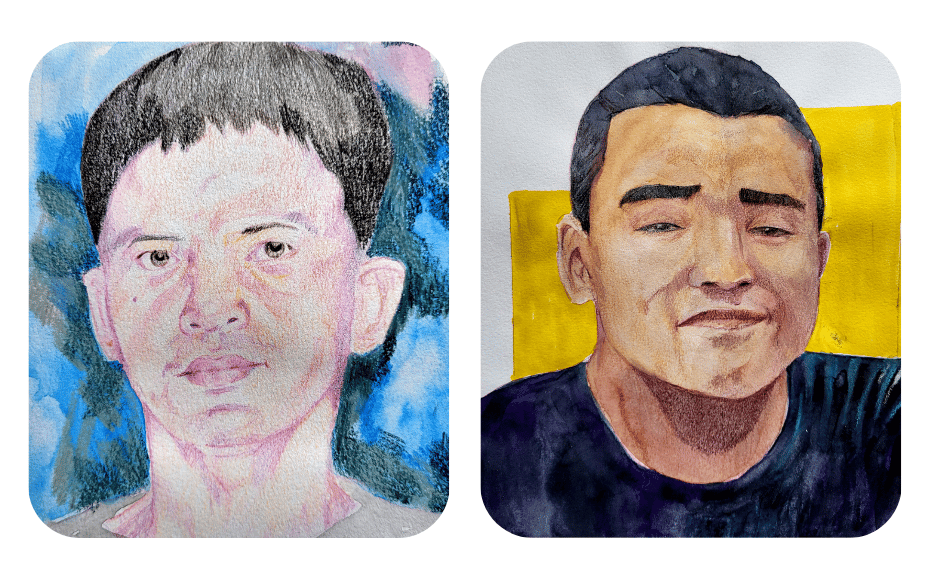Luis and Gabriel
Luis and Gabriel were murdered by a group of cops who barged into their home on 15 September 2016.
THE POOR
10/8/20253 min read


Among certain privileged circles of Filipinos, the question of what led to the tragic mess that was Rodrigo Duterte’s presidency often leads to one answer: it’s all because of the bobotante. ‘Bobotante’ is an amalgam of bobo and botante, translating to ‘stupid voter.’ And when these circles refer to bobotante, they mean the people on the lowest rungs of society, who can never be trusted to vote for the right candidates because they’re easily lured by celebrities and familiar political names.
That there’s often a disconnect between the masses’ electoral choices and what’s actually good for the country might be true, but the root of the gap isn’t gullibility or a preference for celebrities. When your main concern the moment you wake up is how to survive the day, to find some work and get paid for it so you can feed your family, where will you find the time to comb through the news and analyse every candidate who’s trying to win your vote? When your life stays the same, day in, day out, regardless of who’s in power, what motivation could you possibly have to seek out and support the ‘right’ candidate?
Luis Bonifacio and his family belonged to the maligned masses—people whose everyday lives were weighed down by the drudgery of doing backbreaking manual work for little pay. Luis was a house painter who worked for an agency. His eldest son, Gabriel, took on the odd catering job and sorted recycling items.
By the time Duterte came into power in 2016, the Bonifacios, like most people in their Caloocan community, were struggling financially. Luis hadn’t had a job for a long time. His wife Mary Ann had become the main breadwinner, cleaning a neighbour’s house and doing laundry. Luis and Mary Ann’s focus was on putting food on the table for their four children. Concepts like ‘human rights’ were alien to them, given how theirs never seemed to be a priority for those in power.
On the evening of 15 September 2016, most of the family were already in bed. Gabriel was about to leave the house to take formula to his girlfriend’s house, where she and their two-week-old baby were waiting. That was when a large group of cops barged through the door and immediately pointed their guns at the Bonifacios.
The events that followed would form a collage of sounds and images that will always be imprinted on Mary Ann’s mind:
There was Luis on his knees with his hands raised. There was Gabriel pleading with the cops, ‘Sir, please don’t,’ and asking them, over and over, ‘What did we do?’ Dragged out of their house and forced onto the street, Mary Ann and her younger children saw several vans and men in civilian clothes. She would later realise that some of these men were funeral parlour employees and scene of the crime operatives (SOCO), waiting like vultures for the deaths that she had no idea were about to come. She then noticed her teenage daughter being forced into a van by some of the men. Mary Ann went on her knees, begging the men not to take her daughter away. They eventually relented and handed the girl back to her.
All this time, Mary Ann thought that Luis and Gabriel would follow them outside the house, once the cops had confirmed that neither of them was involved in any criminal activities.
Then it happened. Luis and Gabriel were both shot several times by the cops inside the house. Luis died on the spot. Gabriel died in the hospital.
In the aftermath of their tragic loss, Mary Ann and her surviving children would find themselves in terror and disbelief over what happened. They couldn’t understand how the police could commit such horrible crimes on innocent citizens. This collision with brutal reality drove Mary Ann to relentlessly pursue justice for her husband and son. In March 2017, she filed a murder complaint against the cops who shot Luis and Gabriel. She became actively involved in voicing out her plea for justice and helping other people like her—mostly women—who have lost spouses and children to the drug war.
It would take four years for the Ombudsman to respond to the case, downgrading the murder charge to homicide. As they waited for the case to finally be heard in court, Mary Ann and her children would be forced to move house several times out of fear for their safety, finally settling in Manila.
It would take another three years for the four named policemen in the case to be convicted of homicide by the Regional Trial Court of Caloocan. Luis and Gabriel’s case is only the fourth case to have resulted in a conviction for cops involved in Duterte’s drug war.
Luis was 45. Gabriel was 19.
Sources:
Media:
